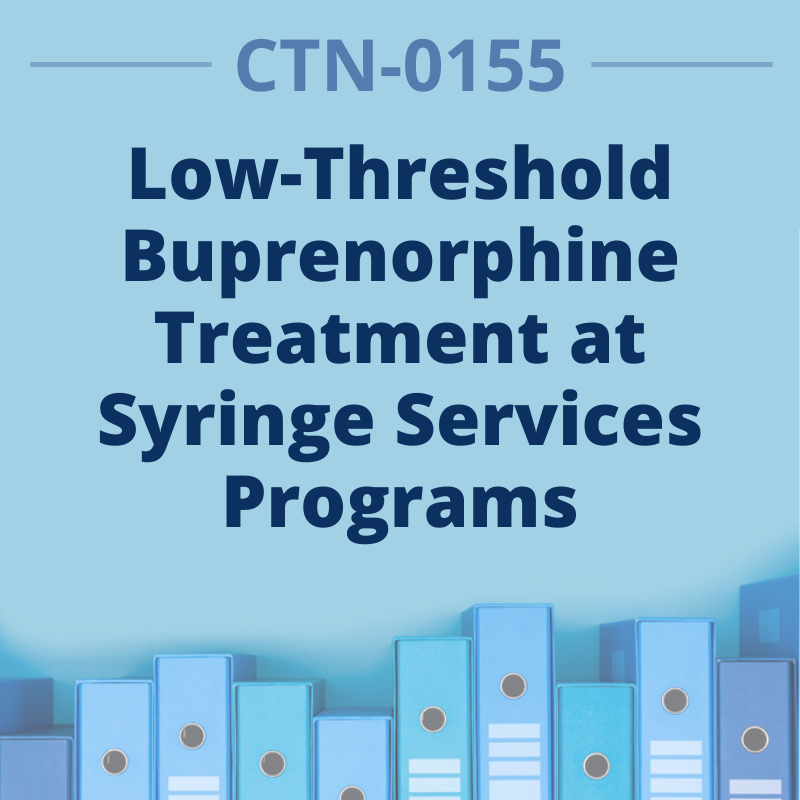CTN-0155: Low-Threshold Buprenorphine Treatment at Syringe Services Programs: A Type I Hybrid Effectiveness-implementation Trial

Aaron Fox, MD, MS
Co-Lead Investigator
Albert Einstein College of Medicine
ADFOX@montefiore.org
Aimee Campbell, PhD, MSW
Co-Lead Investigator
Columbia University Irving Medical Center
New York State Psychiatric Institute
anc2002@cumc.columbia.edu
Hansel Tookes, MD, MPH
Co-Lead Investigator
University of Miami Miller School of Medicine
hetookes@miami.edu
Syringe services programs (SSPs) provide harm reduction supplies (e.g., sterile syringes), social supports, and health care services (e.g., HIV testing) to people who use drugs. Preliminary evidence demonstrates that SSPs can effectively deliver opioid use disorder treatment by offering buprenorphine treatment. In this project, 8 SSPs from diverse geographic areas, including those that serve predominately Black and Indigenous populations, will implement low-threshold buprenorphine treatment, which includes enrollment at SSPs, same-day prescribing, harm reduction counseling, and access to ancillary services. The study will: (1) develop a package of services to aid SSPs in implementing low-threshold buprenorphine treatment; (2) evaluate whether SSP-based low-threshold buprenorphine treatment can increase the number of SSP participants starting buprenorphine treatment and remaining in care for 6 months; and (3) characterize successful strategies for and costs of implementing low-threshold buprenorphine treatment at SSPs.
Funded by the NIH HEAL Initiative℠.
Related Resources
Node Involvement
Lead Node(s):